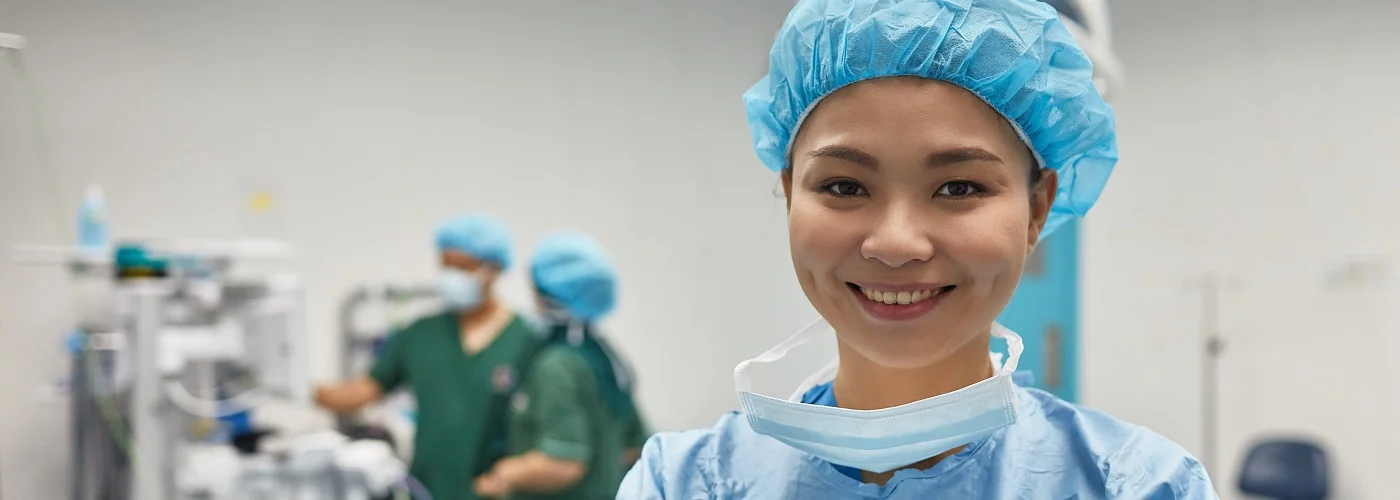
This surgical specialty that focuses on abdominal organs from the intestines to the esophagus, stomach, small bowel, colon, liver, pancreas, gallbladder, bile ducts and thyroid. Though surgeons may sub-specialise in one or more of these areas using various methods such as laparoscopic surgery, they are still considered to be part of the general surgical team. These specialist surgeons are experts in treating ailments and diseases in the major body systems including cardiovascular, digestive, endocrine, excretory, skin, muscular, nervous, reproductive, respiratory and skeletal functions.
Here at Gleneagles, we uphold our commitment to keeping you safe and achieving the best results during your surgery. Our goal is to ensure that the most effective surgical methods are used to put you on the fast track to recovery and rehabilitation. Our advanced technologies aim to diagnose and treat each patient's individual conditions for the best possible outcome while ensuring that any side effects and recovery time are minimised.
We believe that each patient is unique with their own specific expectations and requirements and our team of dedicated and experienced surgeons ensure this via a planned discussion and guided counsel through the most crucial areas concerning treatment.
Mainly recommended to diagnose and/or treat patients via laser therapy, laparoscopic surgery, endoscopy and thoracic surgery when necessary concerning the following conditions:
- Esophageal diseases - reflux oesophagitis, esophageal obstructions, hiatal hernia and esophageal cancers
- Hepatobiliary (liver) disease - benign and malignant diseases of the biliary tract and liver, jaundice, pancreatitis and cholelithiasis
- Gastroduodenal diseases - reflux problems, gastric and/or duodenal ulcers and cancers
Some other common upper gastrointestinal surgeries may include:
- Nissen fundoplication - the reinforcement of lower oesophageal sphincters to treat those with gastroesophageal reflux disese (GERD)
- Roux en-Y - gastric bypass to reduce stomach size, limiting the volume of food one can hold
- Whipple Procedure - or pancreaticduodenectomy, it is a surgical procedure used to help those with pancreatic cancer
More common vascular surgery may include:
- Angioplasty/stenting - the insertion of a balloon or stent to widen narrowed arteries and improve blood flow
- Endovenous laser treatment - for the removal of varicose veins via ultrasound, killing vein walls with laser energy
This type of surgery helps treat patients who suffer from surgical diseases concerning the gastrointestinal tract. This surgery covers upper gastrointestinal surgery as well as colorectal (lower) surgery.
Head and neck surgery concerns the diagnosis, management and treatment of diseases located in the head and neck. From benign to malignant tumors that may require surgery, our dedicated, highly-trained and multidisciplinary team comprising radiation and medical oncologists will evaluate, manage and treat your condition in a careful and holistic manner.
Our specialists are experts in managing and treating conditions concerning these areas:
- Mouth and tongue
- Throat
- Sinuses
- Skin of the head and neck
- Thyroid and parathyroid
Some common surgeries include:
- Tonsillectomy - surgical removal of one or both tonsils to manage and/or treat tonsillitis
- Endoscopic sinal surgery
- Examination of sinal openings for obstructions and/or unusual growths which are then removed
- Uvulopalatopharyngoplasty - the removal of excess tissue from the back of the throat, helping with sleep apnoea
Mainly recommended to diagnose and treat patients with bowel conditions and associated conditions such as colorectal cancers, ulcerative colitis, diverticular disease, Crohn's disease as well as a wide range of benign anorectal conditions including haemorrhoids and anal fissures.
Some of these surgeries include:
- Appendectomy - removal of the appendix
- Haemorrhoidectomy - removal of distended veins in the lower parts of the rectum and/or anus. Other methods may include lasers, stapling or rubber banding
- Partial colectomy - the excision of parts of the colon to treat colon cancer and long-term ulcerative colitis
Often the most effective way to treat liver and bile duct tumours, this form of surgery also helps with treatment of symptoms which may include:
- Removal of gallstones or the entire gallbladder
- Removal of tumours such as hemangioma and focal nodular hyperplasia
- Treatment and/or removal of fluid-filled cysts in the liver which may cause pain and weight loss
- Treatment of pancreatic cancer
Performed on the breast for benign and/or even malignant conditions, breast surgery may include the procedures listed below:
Lumpectomy - the removal of breast lumps as well as surrounding tissues while maintaining the natural appearance of the breast. This procedure is usually advised if an early biopsy shows early stages of breast cancer with small tumors or even for the removal of non-malignant abnormalities.
Mastectomy - the complete removal of the entire breast(s) especially for those afflicted with multiple or large areas of ductal carcinoma. This procedure may also be recommended to remove the possibility of breast cancer occurrence.
Breast augmentation - performed to enhance the appearance of a woman's breast via implants over or under the pectoralis chest muscles.
Breast reduction - performed to reduce the volume and contour while preserving breast sensation and function. This includes the removal of excess skin, fat and glandular tissue which may benefit those afflicted by neck and back pains and skin irritations.
Breast reconstruction - to recreate breasts with a desired appearance, volume and contour via implants using the patient's own tissue. Although nipples can be recreated, normal breast function, sensation and breast feeding abilities are lost due to removal or injury of milk glands and ducts.


Wait a minute

Wait a minute